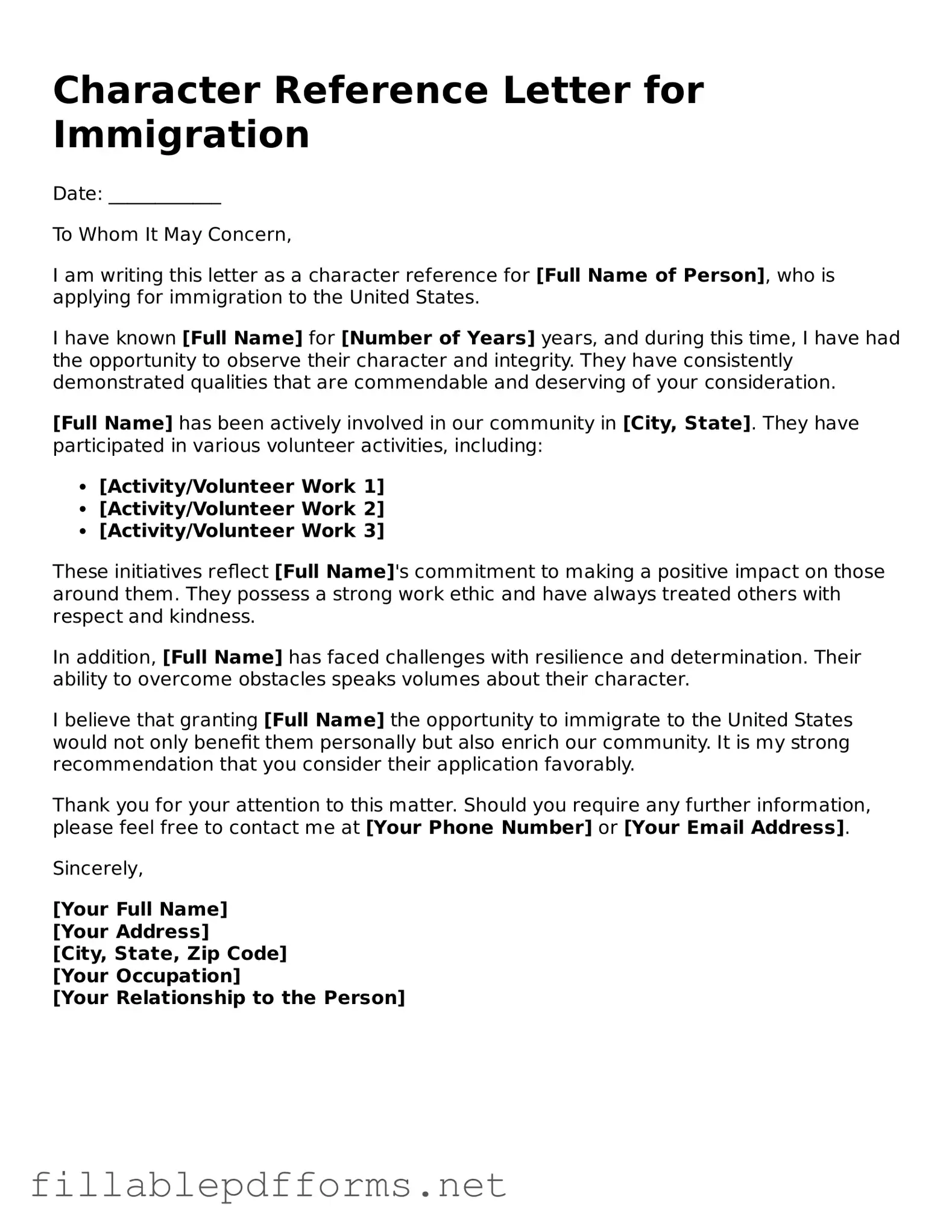Blank Character Reference Letter for Immigration Template
The Character Reference Letter for Immigration is a vital document that provides personal insights into an individual's character and conduct, often supporting their immigration application. This letter, typically written by friends, family, or colleagues, serves to highlight the applicant's positive attributes and contributions to society. A well-crafted reference can significantly enhance the chances of a successful immigration outcome.
Launch Editor Here

Blank Character Reference Letter for Immigration Template
Launch Editor Here

Launch Editor Here
or
▼ Character Reference Letter for Immigration PDF
Almost there — finish the form
Complete Character Reference Letter for Immigration online fast — no printing, no scanning.